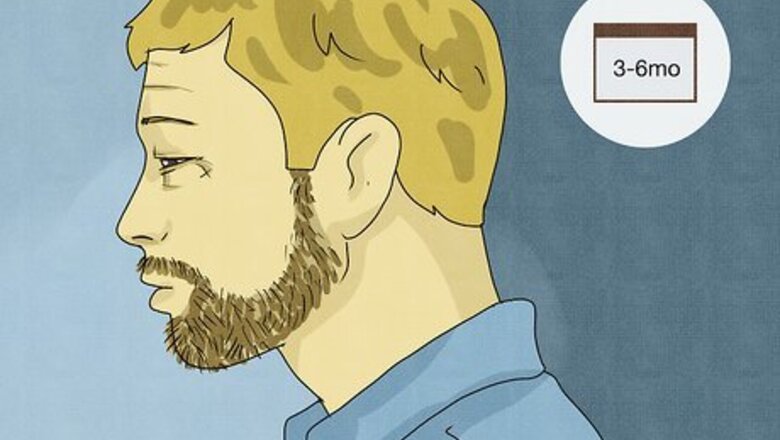
views
Know there's no correct amount of time to wait.

As long as you know dating will positively affect your life, it's the right time. Just be mindful of “widow brain,” or, the 3-6 month period after losing a spouse when one may experience day-to-day confusion. It could cause you to be forgetful, make unusual decisions, or even have trouble getting out of bed. Before choosing to start dating, you should feel confident that you’re in the right headspace to be making important decisions about your life. Talk through the decision with your therapist. If you've experienced "brain fog" symptoms, consider waiting until it's improved before you begin dating.
Reflect on your reasons for dating again.
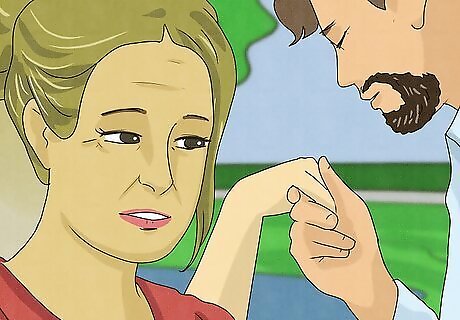
Your motivations for dating are more important than how long you wait. Dating someone new, as much as we may want it to, won’t take away the pain of grief and loss. It can, however, ease loneliness, offer new hope, and simply be a lot of fun. In fact, those are three amazing, completely valid reasons to begin dating again. Explore your feelings by asking questions like: Am I dating in the hopes that it will pause or halt my mourning? Is my interest in dating really about distracting myself from the pain of grieving? Or, am I dating because I want and deserve companionship? Is it because I’m ready to open myself up to all the brightness, hopefulness, and connection that comes with falling in love?
Make the choice on your own.
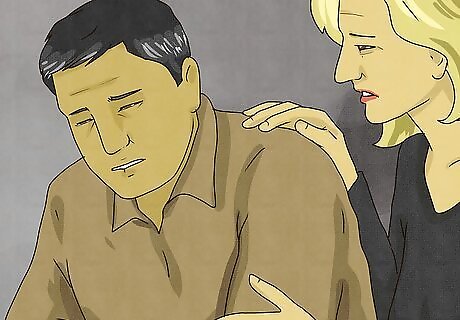
Loved ones may have opinions, but it's your life and your choice. When a widow or widower is ready to date earlier than their family may have expected, this can cause some discomfort. Family members may act out of their own grief, confusing your readiness to find new love with disrespect for your spouse. On the other hand, beloved friends may urge you to date before you’re ready. People who love you may be worried that you’re holding yourself back from your happiness by waiting to date. In both cases, you have to trust yourself. It can be difficult, but only you can decide to start dating again. This is tricky ground to navigate for you and your loved ones. Take comfort in the fact that everyone is motivated by love for you and love for your spouse. Be honest and direct about what you want and in time, your loved ones will likely understand. Oftentimes, people just need time to adjust.
Go in with a positive mindset.

You're more likely to be successful if you view dating as a process of mutual discovery. Go for a casual but enthusiastic attitude in your dating life. This can help you feel more positive but less pressured, making for a better overall experience. Each time you meet up with someone new, try to stay present, focusing less on saying the right things, and more on enjoying a new, exciting person. If someone you liked doesn't get back to you, try to remind yourself that dating can be like a job hunt. You may need to try with lots of different people before you get the right person! After each date, take a second to think about one positive thing you'll take from the experience, regardless of if you see each other again. Even if all you can come up with is that it'll make for a funny story, this can help you find a more positive approach on your dating journey. You deserve love. And, you deserve to enjoy the process of finding it.
Try to let go of the guilt.

Feelings of guilt are normal, but don’t let them hold you back. On your first date after losing a spouse, you may feel strange, or even ashamed. Some discuss feeling like they’re cheating on the spouses they lost—like they needed to hide while sitting down at a restaurant with their date. These feelings are completely typical, and they will almost certainly get less intense over time. If you know you’re ready to date, don’t let normal (but unwarranted!) guilty feelings keep you from trying to find love again. You deserve to go after what will make you happy. And remember, trying to find love with someone new can never replace or erase the love you have for your spouse.
Tell your date that you're a widow.
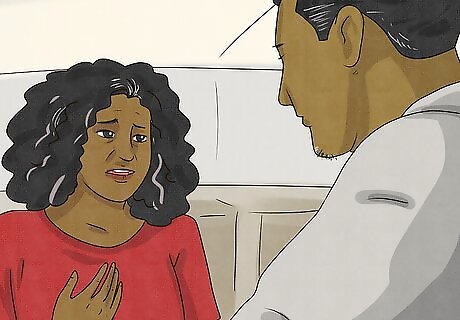
To find love, you should be honest about yourself and your marriage. There’s no need to lie about your spouse or dodge your date’s questions. Your marriage, your spouse, and your experience with loss are all impactful pieces of your personal story. Your date will likely want to get to know you fully, and you should give them a chance to do that. Mention this on your first date or wait until you're asked directly. When your date asks about your spouse, answer honestly. As long as you feel comfortable, there's nothing wrong with being upfront. At the same time, if you're tempted to talk at length about your grieving process, you may not be ready to date just yet. Focus on answering your date's questions honestly when they ask, but don't initiate a long conversation about your spouse yourself.
Take things slow.
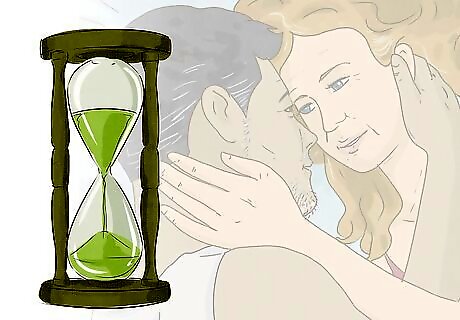
You may want to rush into love to fill the void, but this may hurt more. New love can drum up feelings of excitement and connection—serving as a very powerful distraction from other things in your life, like grief. You deserve to relish all of the brightness and happiness in new love, but you may end up creating a relationship that hurts more than it helps if you're not patient. You and your new partner may both end up with heartbreak down the line if you don’t ensure early on that you’re chasing love, not the intimacy from your marriage that you miss. Talk the issue through with a loved one, try journaling, or ask yourself without judgment what you really love in your new relationship. Am I in love with the other person, and that’s why I’m tempted to jump in headfirst? Or is it possible that I just miss having a day-to-day partner, someone to eat dinner with me each night, and someone to wake up to each morning? Before rushing into something serious, make sure you answer "yes" to the first question and "no" to the second.
Cut yourself some slack when dating.
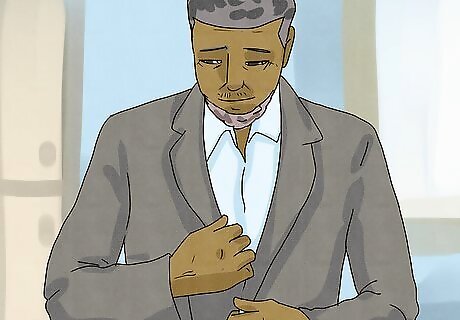
It's okay if dating does come as naturally to you as it used to. When you’ve been in a comfortable, committed relationship for years, it makes sense that the two of you wouldn't keep up early-stage dating etiquettes. You may get nervous or feel a bit lost while trying to remember when it’s okay to call, if you’re supposed to hold the door for your date, or when you should go in for a kiss. It makes sense that you’d be rusty. Take a breath, remember that you’re doing your best, and if it helps, pool some friends’ opinions on dating best practices. Remind yourself that the most important thing is that you're feeling confident and having fun.
Be straightforward with your loved ones.
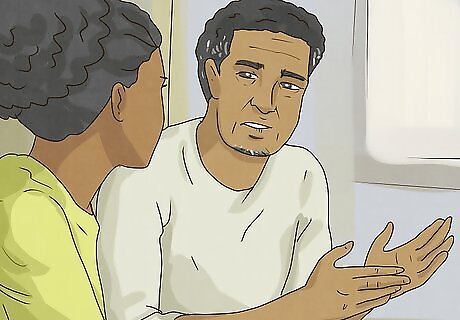
Your family might be resistant to your new relationship, and that’s okay. This is a result of their own grief. Or worse, they may not always be warm and welcoming to your new connections. This resistance can take on many forms: not reaching out to your date, talking about your spouse in front of your date, or acting unfriendly in conversation. This behavior is totally normal, but ultimately, not helpful in your pursuit of love. Try pulling aside your family members to speak one on one. Be gentle, but direct. Let them know that you understand where they’re coming from, but that you deserve to be happy. Emphasize that their behavior could jeopardize you finding that happiness in your new relationship. Finally, remind them that no one can or will replace your spouse. You deserve to have love in your life. And finding new love doesn’t affect the love you’ll always have for your spouse.
Make time for you.

Self-care can help combat loneliness and low mood. When you consider or begin dating again, you may battle any number of confusing, overwhelming feelings. By spending time on yourself, you can fight off negative self-talk, you can better understand what you want and need, and you could improve yourself and your mood—which can help your success in dating. Try including positive affirmations into your daily ritual. Challenge negative self-talk brought on by feelings of guilt. Find ways to treat yourself regularly. Wear a face mask, enjoy an activity you're passionate about, or take yourself to the movie theater. Exercise, give your body nutritious food, and focus on getting lots of rest.
Reach out to a therapist if you're struggling.

Professional help can be a huge source of relief for people. Dealing with the death of a spouse is one of the hardest things a person can go through. If you find yourself feeling overwhelmed by your grief, that's a completely understandable reaction. Know that therapy can make you feel supported and more hopeful. Find a therapist through friend's recommendations, doctor recommendations, or online.

















Comments
0 comment